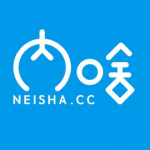Before founding Neisha in 2015, Yang Wei operated an official account on WeChat to educate followers about wine. In June 2015, he went to shoot a documentary on wine in France where it cost him RMB 2,000 to rent two pieces of equipment worth RMB 15,900. Unfortunately, he struggled to find a trustworthy rental shop on domestic websites. None of the shops provided guarantees on rental transactions. Yang had to negotiate deposit, terms of lease and rental cost with each one. To make it worse, shops that broke contract would incur no penalties. An idea struck him: why not set up a reliable rental platform for the Chinese market?
Yang’s startup, Neisha, an online platform that allows users to rent electronic devices for travel and recreation, was established in the midst of a booming market. In 2017, the sharing economy in China was valued at about RMB 5 trillion, a year-on-year growth of 43.81%. The equipment rental sector in particular has grown rapidly in recent years: according to Yang, the sector was worth tens of billions of RMB in 2016.
Compared to other sectors of the sharing economy, rental of travel and recreational equipment is still in its infancy. However, changes in consumer habits in China, driven by an increase in consumption, have expanded its share of the market. In 2015, about four billion tourist trips were made in China.
Neisha’s growth has paralleled that of Chinese tourism: since its establishment, the startup has experienced continuous expansion. By August 2017, the platform had seven million registered users.
Investors were quick to respond to the rise in demand for equipment rental. In 2017, RMB 18.3 billion was spent on the equipment sharing and rental business, a 30-fold increase over 2015. Neisha has received millions of RMB from angel investor Longling Capital, which was started by Cai Wensheng, founder of Meitu, and tens of millions of RMB in Series A+ financing from Ant Financial, the financial arm of Alibaba and operator of Alipay.
Fewer idle devices
Neisha works by connecting two groups of people. Individual owners of expensive but infrequently used electronic equipment such as cameras, action cameras and drones can rent their property out to users who want to try these items at relatively low cost. Neisha employs both C2B2C and B2C models. In addition to allowing private individuals to loan items on the platform, Neisha also rents out its own inventory of equipment purchased directly from manufacturers.
Neisha mainly targets youth aged 18-29 who tend to be more interested in travel and recreation and are willing to rent the equipment because of the decreased cost. To attract these users, the platform airs an online show on China’s biggest video sites - e.g. Youku, Tencent Video and Bilibili - called “Equipment Know-How Series,” which introduces the pros and cons of the latest cameras or lenses. The series has drawn a total of over one million views, and its audience is made up primarily of people born after 1990.
At the vanguard
Neisha, a trailblazer in an emerging field, has treaded carefully into the unknown. When the company started, few people were willing to entrust their expensive electronic devices to an unknown platform, so Yang Wei bought equipment worth over RMB 100,000 to rent to potential customers. Only 10 rentals were made in the first month.
But positive customer experiences brought in more users. In 2016, the number of users increased on average by 50-60% each month, and monthly orders exceeded 1,000. In 2017, Neisha established partnerships with JD.com and Ant Financial, and its user base increased from 100,000 to four million.
Now that user numbers are up, improving customer experience on the platform has become the Neisha team’s top priority. To make sure items on its platform are fun to use and in good condition, Neisha has set up an Equipment Selection Commission that formulates precise criteria for which equipment should be available on the platform. Currently, most items on Neisha are the latest devices from top brands. “We don’t want users to waste time on rubbish,” says Yang Wei.
The company now rewards particularly reliable users. To alleviate the deposit burden on renters, Neisha works with Sesame Credit, a social credit scoring system developed by Ant Financial. High Sesame Credit scores can be used to waive rental deposits.
Neisha is also streamlining and restructuring its process. By substituting machines for human labor, the efficiency of its supply chain management is likely to increase by a factor of 25.
The gadget rental business continues to attract more players. But Yang Wei isn’t daunted: “Competition will promote the development of the whole industry, and we have to be the leading player in the arena.”













